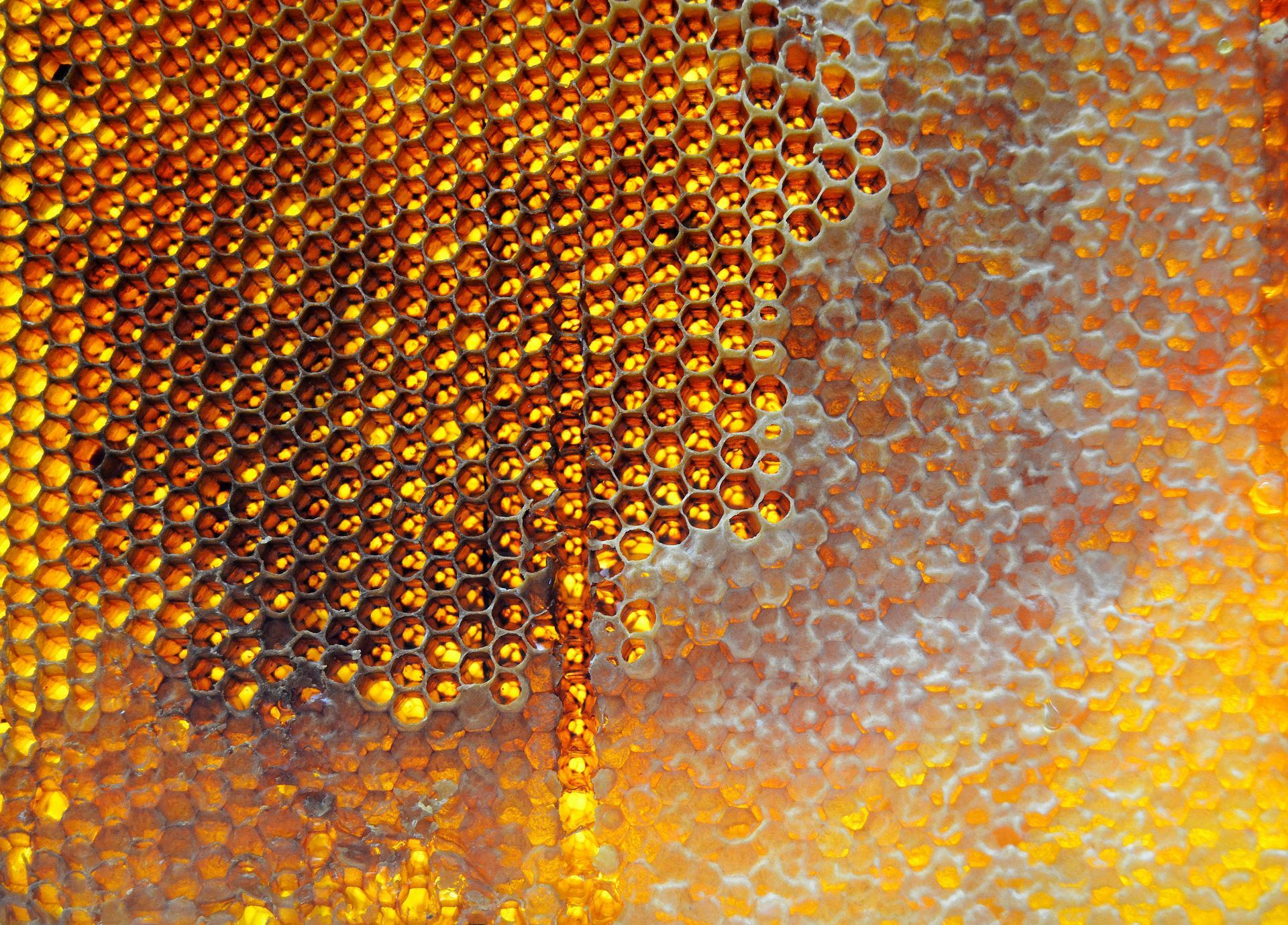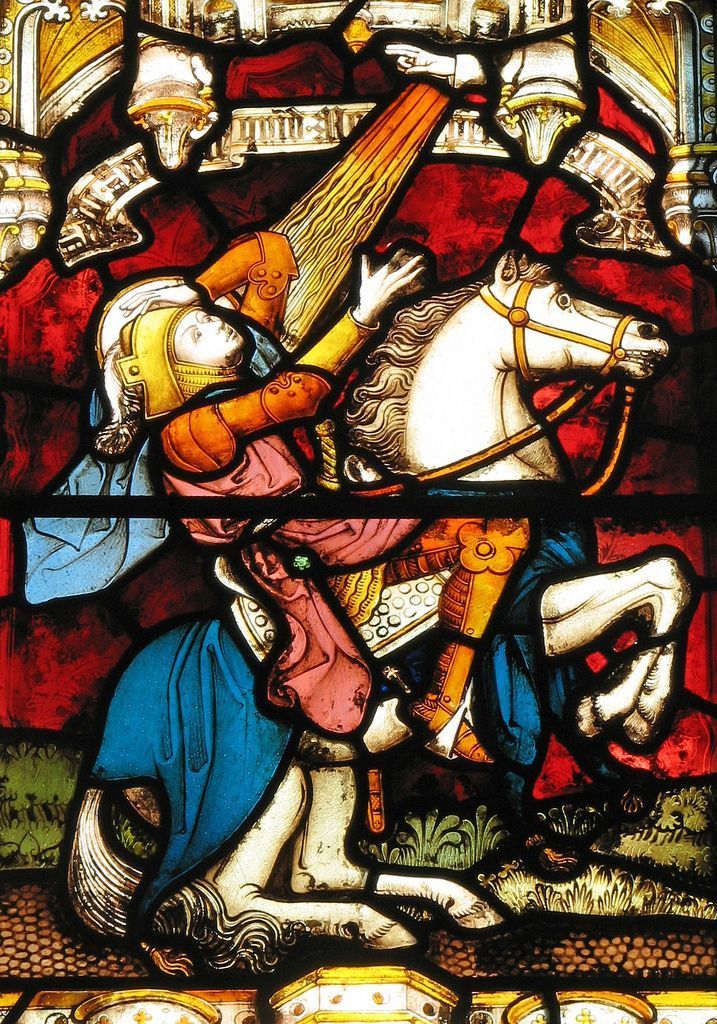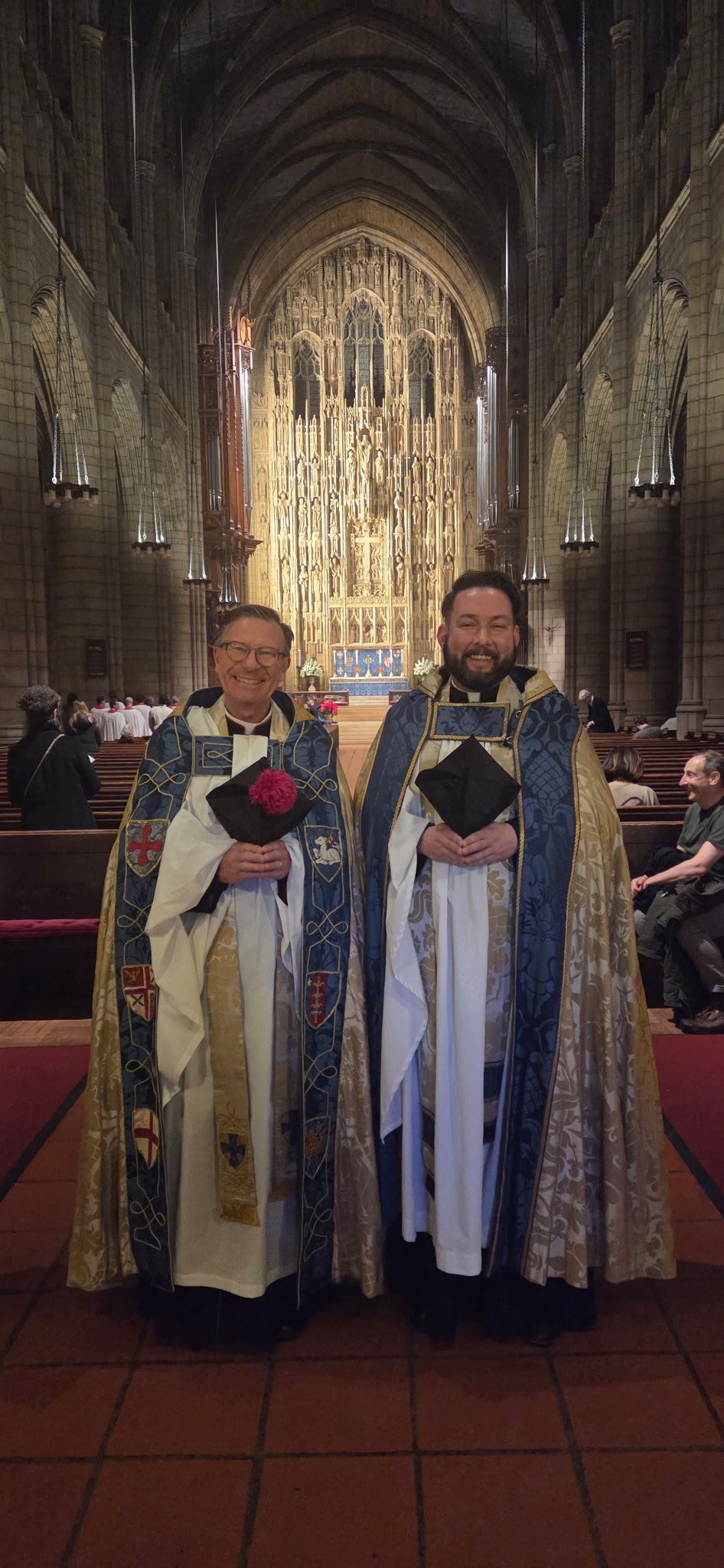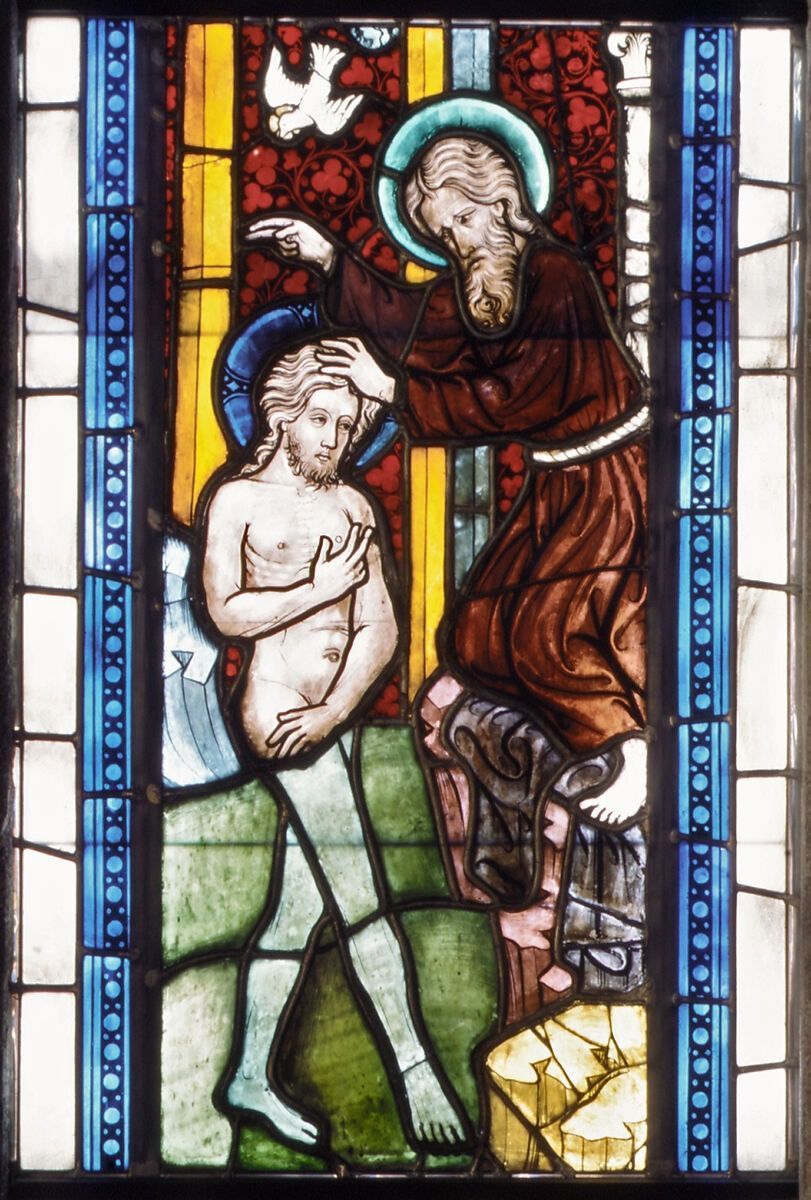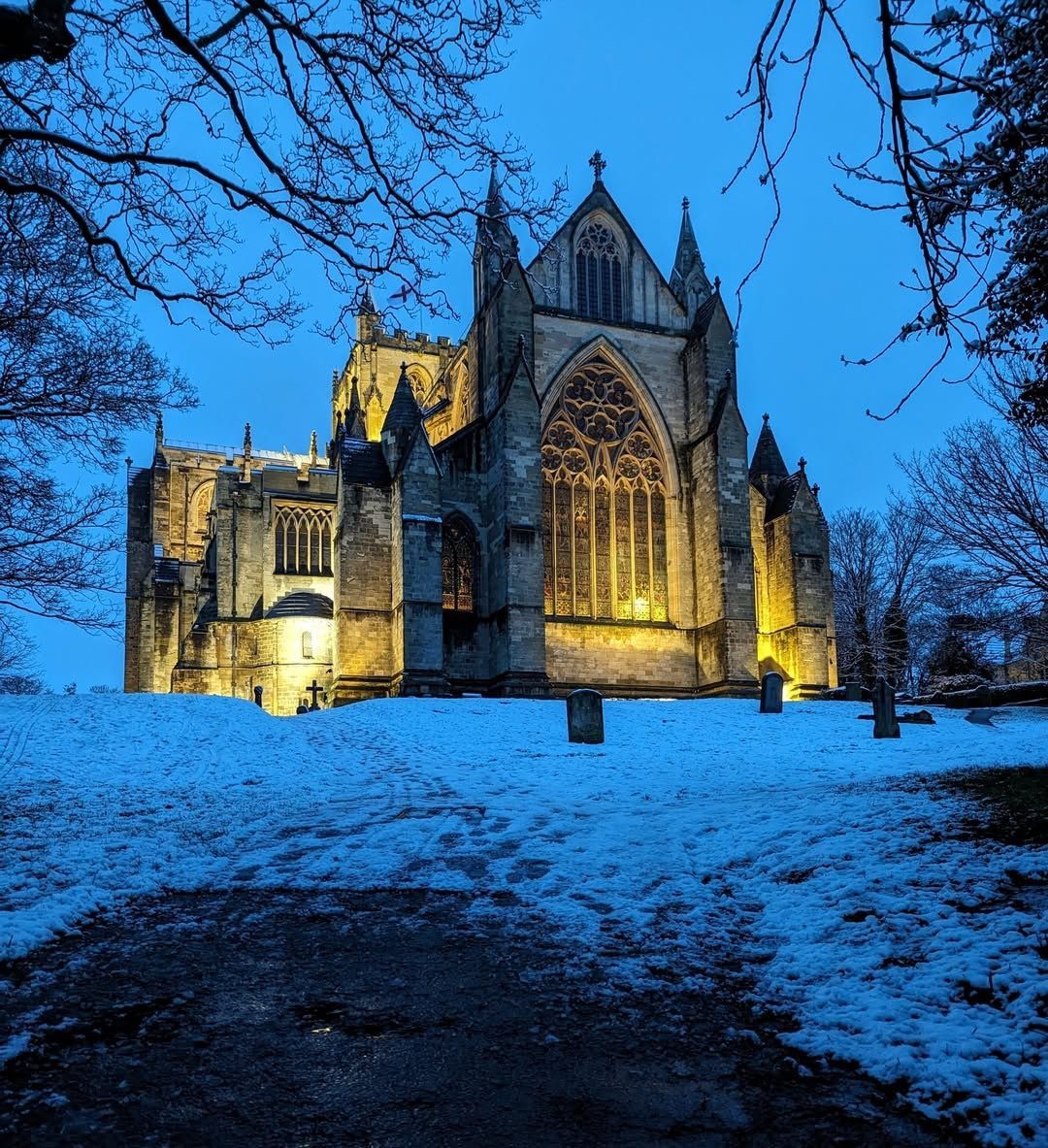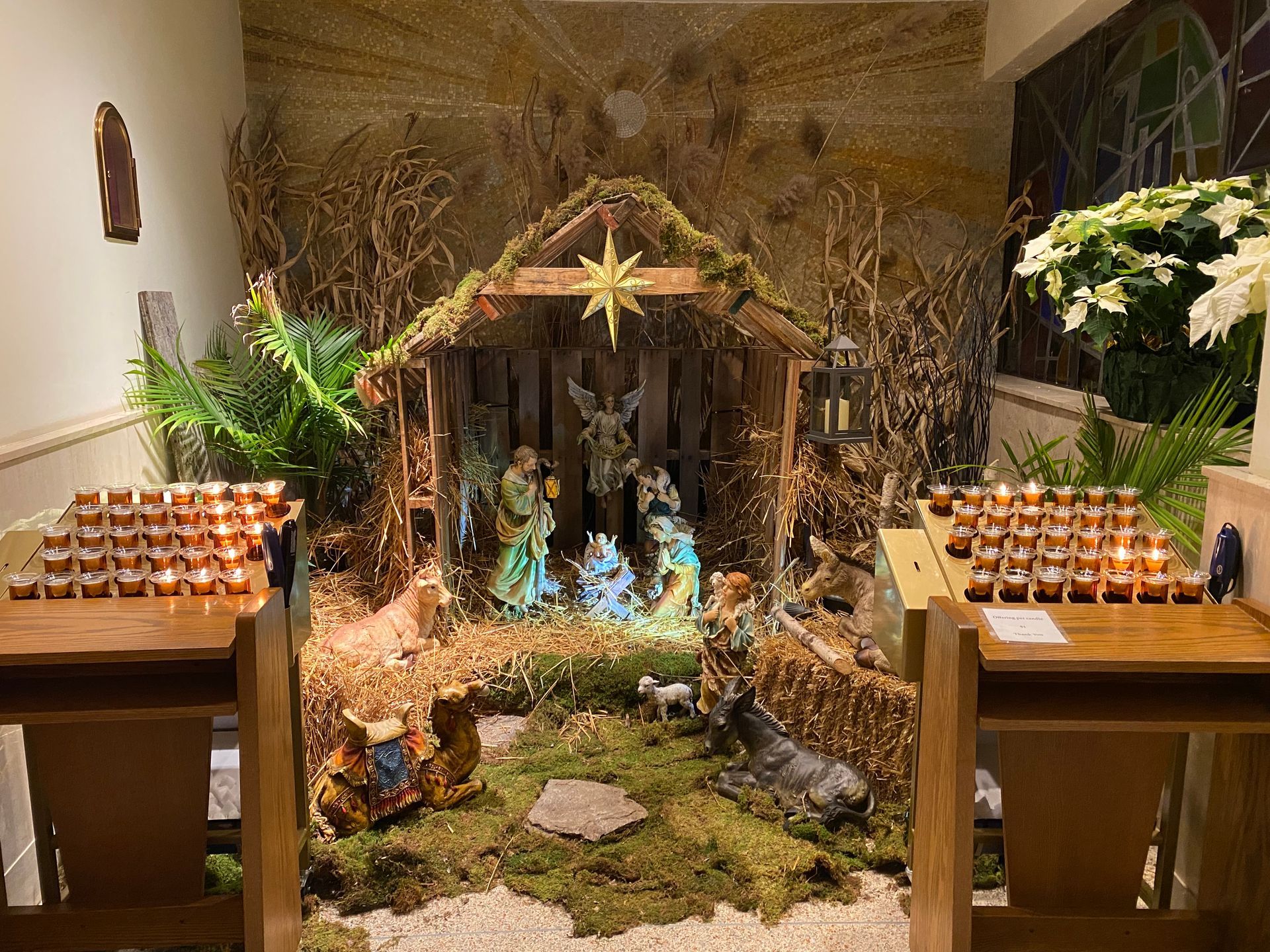Made for Heaven
Rev. Michael J.V. Clark • November 1, 2025

Last week, I invited you to embrace the Fall - to lean in to the demand God makes for us to let go the last vestiges of pride, leaf by leaf. This week we have the answer to the question: why? For this week we celebrate the Feasts of Eternity - All Saints, and All Souls. The Church spreads her table and shows us the possibility of life without fear, pain, sorrow, or regret. Will you choose it?
Let me begin with a provocative challenge. Imagine on your way home today, time freezes and an angel of God appears to you. The angel has come with a message and an invitation. God is giving you the opportunity to go straight to heaven - right away! No goodbyes, no farewells. It’s a one-time offer, and you have seconds to decide. What would you choose?
So the Christian answer should be a no-brainer. You choose heaven - right there and then. But did any of you hesitate a moment? You see, for most of us, one area our spiritual life is lacking is that we don’t really want heaven enough. We actually want our life here on earth, perhaps with a few adjustments: winning the lottery, being free from sickness and pain, our family and friends to be happy. The list could go on…
If this is true of you - and it is certainly true of me, much of the time - then the diagnosis is: lack of desire. We want heaven in a theoretical way - and not in an urgent way. We need to find a way to make that desire more urgent. One common characteristic of all the saints is an overriding desire for heaven - that is, for a state of permanent union with God. In the Letter to the Philippians St. Paul says:
For to me to live is Christ, and to die is gain. If I am to live in the flesh, that means fruitful labor for me. Yet which I shall choose I cannot tell. I am hard pressed between the two. My desire is to depart and be with Christ, for that is far better.
Phil 1:21-23
It’s easy to be distracted by this life. If an angel of the Lord appeared to my own father and made the same invitation I just gave you, I hope that blessed spirit would not remind dad that there’s no sea in heaven, because he loves his boat so much. In almost every age prior to ours, the appeal of heaven was obvious. If you lived before the invention of antibiotics, then death and disease was always present in the midst of life. There was no way to avoid the conclusion that suffering was part and parcel. Progress (and healthcare) have masked these realities for us so much that the practice of religion has been reduced to an elective hobby - ‘go to Church if that’s your thing, but it’s not my thing’ - and people of genuine good will really do fall for Satan’s lie that there’s nothing more than this life, so you might as well be comfortable. How he laughs at how readily we give away our inheritance as the children of God in exchange for gimcrack and trinkets!
But scratch the surface, and there’s a fug, an ennui, with all this life has to offer if you don’t have Faith, and perhaps my task as preacher is to paint a more vivid picture of heaven than the pastel colors of your early childhood. We don’t sit on clouds strumming harps all day (not least because there are no days, nor nights - indeed, there’s no time, at all.) How do you know since you’ve never been there? I hear you ask. Well, we can say much more about heaven than you might think, and we have two sources for our knowledge: (1.) our reason - God endows us with the ability to think abstractly, and correctly, (2.) what God says and does - what we could not otherwise know, God has revealed to us by his words, and actions.
These two sources work together - the Bible is not a prospectus - it’s not trying to sell you something, but information is there, and can be pieced together to gain more knowledge, and more insight. That’s basically what Theology is! I had a list of 18 fun facts about heaven, but that would surely test your patience, so here are just a few:
- Your will (what you desire) is perfectly aligned with God’s will. There’s not a cigarette paper between you: what you want, God wants, and what God wants, you want.
- Your body is perfectly led by your spirit. This means the only limitation on what you can do is your imagination. If there were an ocean in heaven (sorry again, dad) you could leap across it at will if you so desire.
- You can walk through walls. We know this because of our limited experience of a resurrected human body when Our Lord appeared to his disciples after his Passion.
- You can eat (there’s a banquet) but you don’t need to, and you won’t get fat. The necessity of eating is to preserve our bodies in time, which would otherwise wither and die.
- Your vision (and other senses) will work in reverse. Here on earth, we see things, and from those things we get ideas. In heaven, we start with the ideas - more precisely, we start with the direct experience of God as he is, then move through ideas, and only then to material things.
- Your bodily eyes will never see the Father, or the Holy Spirit, or the Angels. Your vision of them will be in your mind’s eye. Your bodily eyes will, however, gaze upon Jesus, because he took upon himself our human nature in addition to his divine nature, and will never give it up.
- You are always at Mass and you’re singing (I hope you don’t want to revisit the answer to my opening question now…) But it’s perfect, and it’s all you want. Your body is designed to give God worship, and the experience of Jesus in heaven is as the Lamb of God, standing as if slain.
- Everyone is the same age - or rather, no age at all. Age is a consequence of time, so, for example, somebody who dies very young is not confined to eternity as an infant. They are themselves, perfected, and identifiable.
There’s quite a lot of detail, isn’t there? So what about the other states? purgatory and hell. Yes, we still believe in both. Well here’s my most controversial conclusion: all three states of life in eternity are expressions of the love and mercy of God. It couldn’t be any other way. God is not all-loving to some, but not others. It is not God who changes in relation to us, but we who change in relation to him. And he loves us so much as to respect our choices, even to the end.
Have you ever been to a party in the wrong dress code? It’s very embarrassing. You just can’t be yourself. You don’t fit in. You’d rather go back and change, and come in properly attired. I think that’s the closest analogy to purgatory I can give you - it’s a place you choose, recognizing with full, perfect knowledge, who God is, and how far short I fall from the mark. God, in his love and mercy, permits a temporary separation from him, whereby I can get changed, and be ready to enter the communion of Saints.
Hell is an extension of this perfect self-knowledge. It is the saddest and loneliest state. It’s where you realize you don’t fit in, and you gave up every possible offer of clothing, and God, who still loves you even if you don’t love him, permits you to be apart from him, forever. God does not choose for anyone to go there. We Catholics do not believe in ‘double predestination’ (the Calvinist belief that God pre-elects those who go to heaven or hell) we believe in single predestination, which is that God has knowledge of our free choices, even before we make them.
There is one price God is prepared to pay for the possibility of us sharing his life of blessedness for ever: the price that some of us would choose to reject that possibility for ever. We do not (and cannot) know how many. But we do know it cannot logically be any other way - creation without hell is creation without freedom, and therefore without love. But since love is real, and our freedom is real, God gives us the greatest invitation imaginable - invitation to choose him, for ever.
Say yes!
Recent Posts



